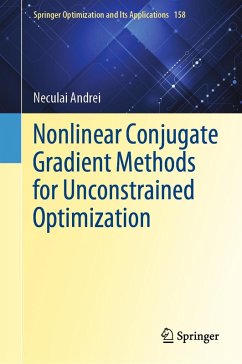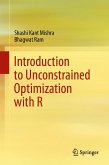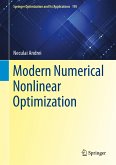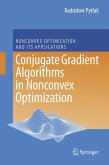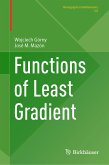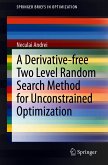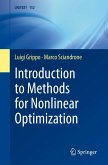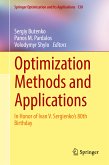The theory behind the conjugate gradient algorithms presented as a methodology is developed with a clear, rigorous, and friendly exposition; the reader will gain an understanding of their properties and their convergence and will learn to develop and prove the convergence of his/her own methods. Numerous numerical studies are supplied with comparisons and comments on the behavior of conjugate gradient algorithms for solving a collection of 800 unconstrained optimization problems of different structures and complexities with the number of variables in the range [1000,10000]. The book is addressed to all those interested in developing and using new advanced techniques for solving unconstrained optimization complex problems. Mathematical programming researchers, theoreticians and practitioners in operations research, practitioners in engineering and industry researchers, as well as graduate students in mathematics,Ph.D. and master students in mathematical programming, will find plenty of information and practical applications for solving large-scale unconstrained optimization problems and applications by conjugate gradient methods.
Dieser Download kann aus rechtlichen Gründen nur mit Rechnungsadresse in A, B, BG, CY, CZ, D, DK, EW, E, FIN, F, GR, HR, H, IRL, I, LT, L, LR, M, NL, PL, P, R, S, SLO, SK ausgeliefert werden.
convergence properties. ... The book will be very useful for researchers, graduate students and practitioners interested in studying nonlinear CG methods." (Hiroshi Yabe, Mathematical Reviews, April, 2022)

